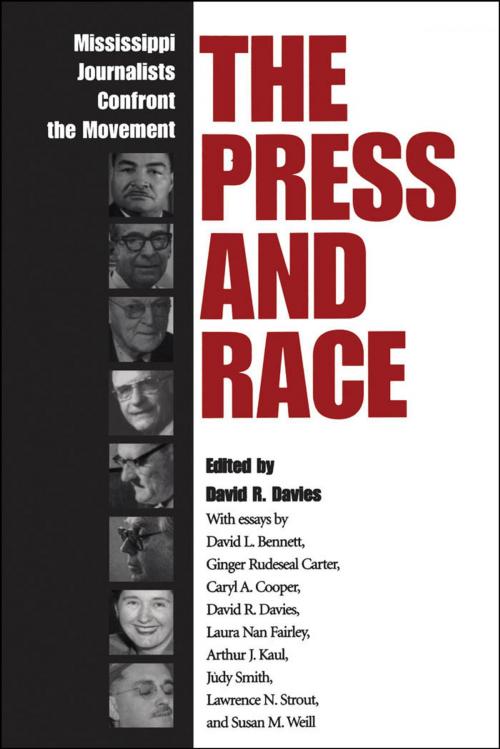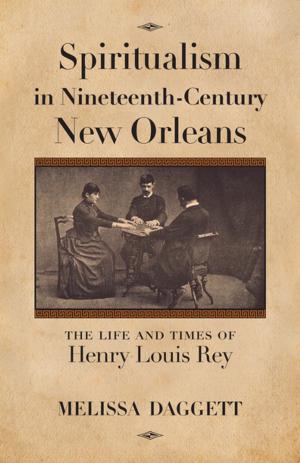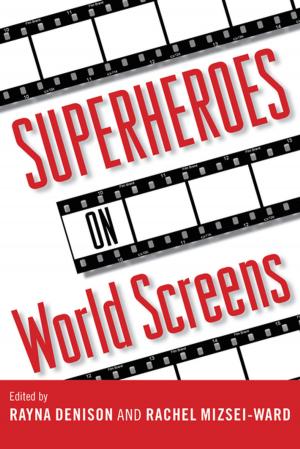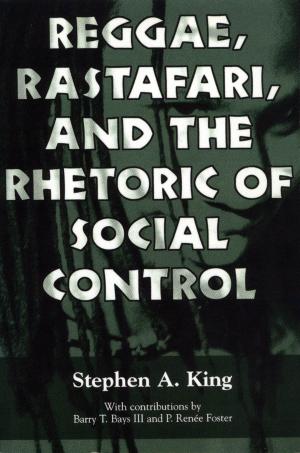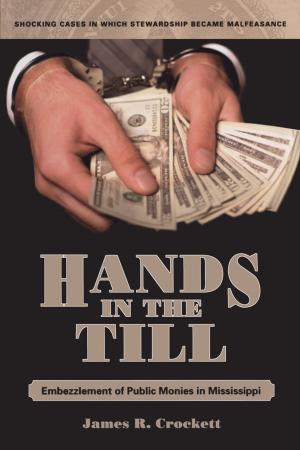The Press and Race
Mississippi Journalists Confront the Movement
Nonfiction, Social & Cultural Studies, Social Science| Author: | ISBN: | 9781604739107 | |
| Publisher: | University Press of Mississippi | Publication: | June 1, 2007 |
| Imprint: | University Press of Mississippi | Language: | English |
| Author: | |
| ISBN: | 9781604739107 |
| Publisher: | University Press of Mississippi |
| Publication: | June 1, 2007 |
| Imprint: | University Press of Mississippi |
| Language: | English |
For southern newspapers and southern readers, the social upheaval in the years following Brown v. Board of Education (1954) was, as Time put it in 1956, "the region's biggest running story since slavery." The southern press struggled with the region's accommodation of the school desegregation ruling and with black America's demand for civil rights.
The nine essays in The Press and Race illuminate the broad array of print journalists' responses to the civil rights movement in Mississippi, a state that was one of the nation's major civil rights battlegrounds. Three of the journalists covered won Pulitzer prizes for their work and one was the first woman editorial writer to earn that coveted prize.
The journalists and editors covered are Hodding Carter, Jr. (Greenville Delta Democrat-Times), J. Oliver Emmerich (McComb Enterprise-Journal), Percy Greene (Jackson Advocate), Ira B. Harkey, Jr. (Pascagoula Chronicle), George A. McLean (Tupelo Journal), Bill Minor (New Orleans Times-Picayune), Hazel Brannon Smith (Lexington Adviser), and Jimmy Ward (Jackson Daily News). Their editorial stances run the gamut from moderates such as Minor, Smith, and Carter, Jr., to openly segregationist editors such as Ward and Greene.
The Press and Race follows the press from the 1954 Brown v. Board of Education decision to 1965, when Congress passed the Voting Rights Act. Those years saw some of the most important events of the civil rights movement-the South's resistance to school desegregation throughout the 1950s and 1960s; the Freedom Rides of 1961; James Meredith's admission into the University of Mississippi in 1962; the assassination of Medgar Evers in 1963; and the events of Freedom Summer in 1964. These essays present an in-depth analysis of the editorials, articles, journalistic standards, and work of Mississippi newspaper reporters and editors as they covered this tumultuous era in American history.
While a handful of Mississippi journalists openly defended blacks and challenged the state's racial policies, others responded by redoubling their support of Mississippi's segregated society. Still others responded with a moderate defense of black Americans' legal rights, while at the same time defending the status quo of segregation.
The Press and Race reveals the outrage, emotion, and deliberation of the people who would soon be carrying out the nation's command to end segregation. The journalists discussed here were southerners and insiders in a crisis. Their writing made journalism history.
David R. Davies is chair of the department of journalism at the University of Southern Mississippi in Hattiesburg. A former reporter for the Arkansas Gazette, he has been published in American Journalism, the Chicago Tribune, and the Journal of Mississippi History.
For southern newspapers and southern readers, the social upheaval in the years following Brown v. Board of Education (1954) was, as Time put it in 1956, "the region's biggest running story since slavery." The southern press struggled with the region's accommodation of the school desegregation ruling and with black America's demand for civil rights.
The nine essays in The Press and Race illuminate the broad array of print journalists' responses to the civil rights movement in Mississippi, a state that was one of the nation's major civil rights battlegrounds. Three of the journalists covered won Pulitzer prizes for their work and one was the first woman editorial writer to earn that coveted prize.
The journalists and editors covered are Hodding Carter, Jr. (Greenville Delta Democrat-Times), J. Oliver Emmerich (McComb Enterprise-Journal), Percy Greene (Jackson Advocate), Ira B. Harkey, Jr. (Pascagoula Chronicle), George A. McLean (Tupelo Journal), Bill Minor (New Orleans Times-Picayune), Hazel Brannon Smith (Lexington Adviser), and Jimmy Ward (Jackson Daily News). Their editorial stances run the gamut from moderates such as Minor, Smith, and Carter, Jr., to openly segregationist editors such as Ward and Greene.
The Press and Race follows the press from the 1954 Brown v. Board of Education decision to 1965, when Congress passed the Voting Rights Act. Those years saw some of the most important events of the civil rights movement-the South's resistance to school desegregation throughout the 1950s and 1960s; the Freedom Rides of 1961; James Meredith's admission into the University of Mississippi in 1962; the assassination of Medgar Evers in 1963; and the events of Freedom Summer in 1964. These essays present an in-depth analysis of the editorials, articles, journalistic standards, and work of Mississippi newspaper reporters and editors as they covered this tumultuous era in American history.
While a handful of Mississippi journalists openly defended blacks and challenged the state's racial policies, others responded by redoubling their support of Mississippi's segregated society. Still others responded with a moderate defense of black Americans' legal rights, while at the same time defending the status quo of segregation.
The Press and Race reveals the outrage, emotion, and deliberation of the people who would soon be carrying out the nation's command to end segregation. The journalists discussed here were southerners and insiders in a crisis. Their writing made journalism history.
David R. Davies is chair of the department of journalism at the University of Southern Mississippi in Hattiesburg. A former reporter for the Arkansas Gazette, he has been published in American Journalism, the Chicago Tribune, and the Journal of Mississippi History.
